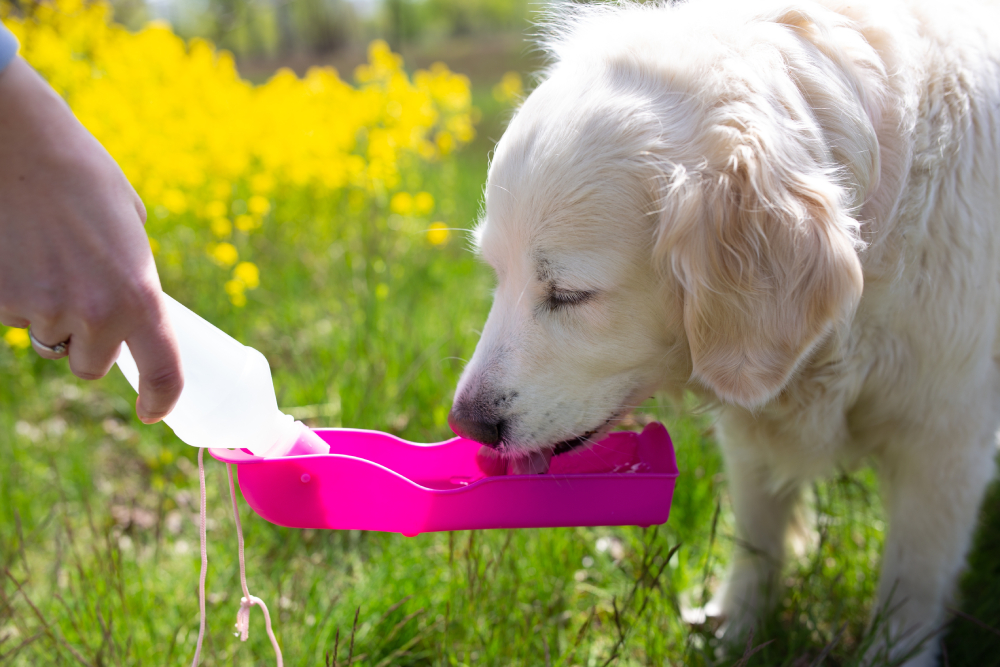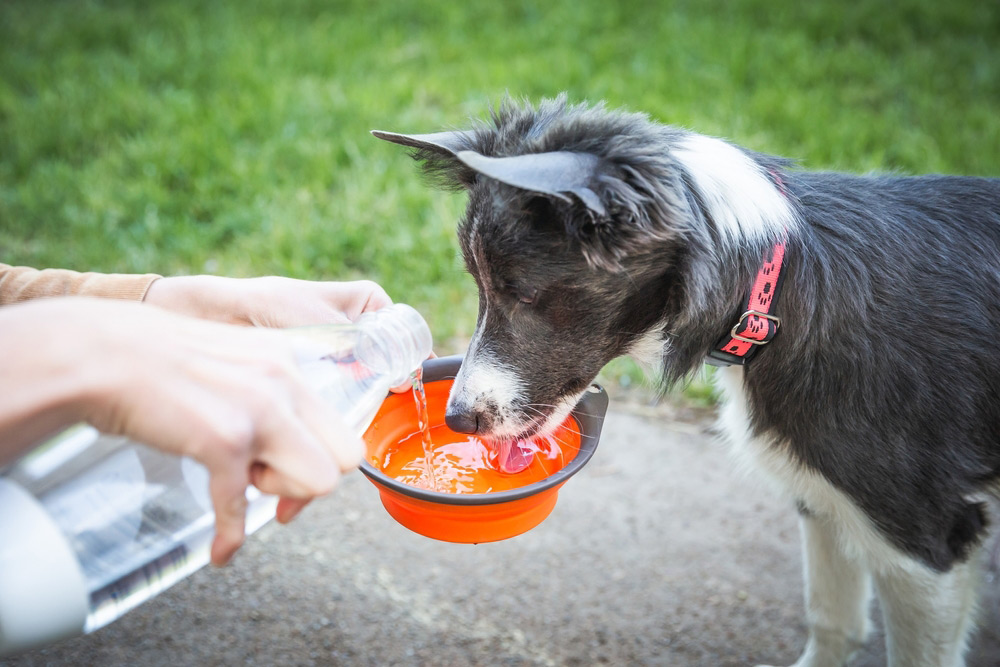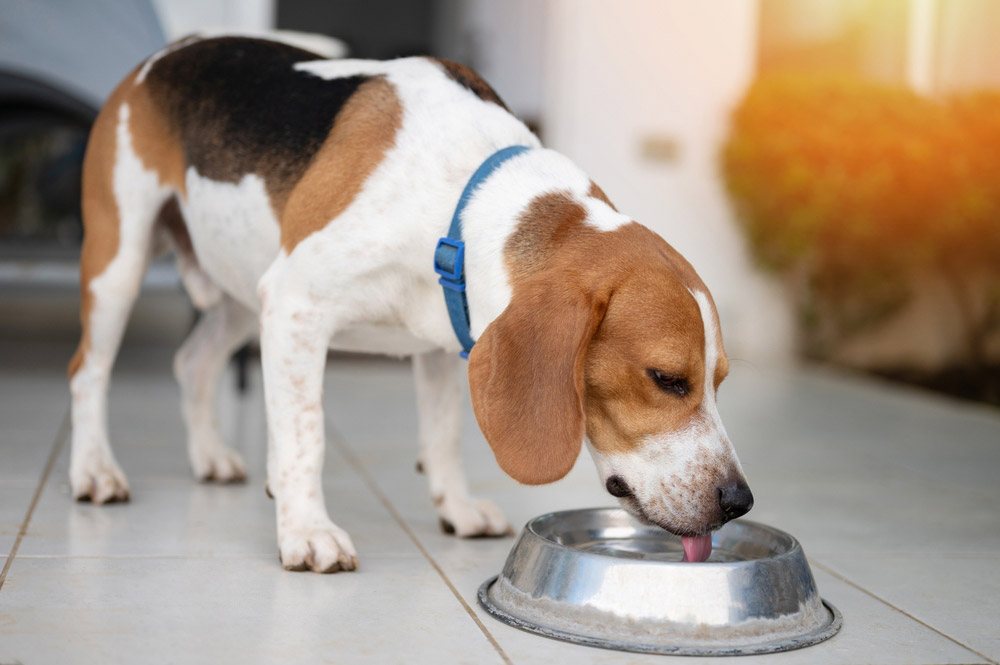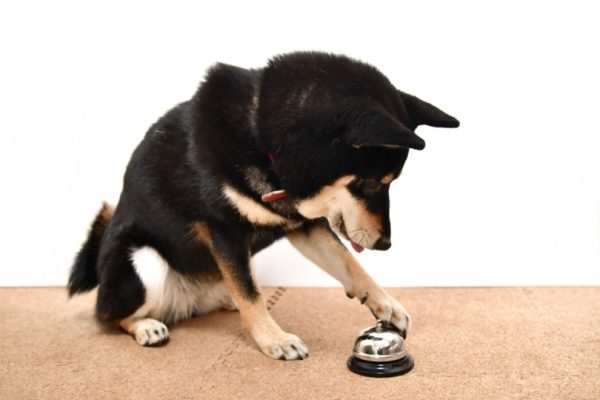In this article
View 4 More +Hydration is a key component to having a healthy dog, as a dehydrated dog can become ill, and their body won’t function as it should. You might be desperate to find ways to increase your pet’s liquid intake, which may include giving them water-dense fruits and vegetables, adding broth to their kibble, or adding canned food as a topper to their meals. But what about water enhancers? These can make plain water more appealing and enjoyable to drink for humans, but are they safe for dogs?
Although water enhancers created for people aren’t a good idea for your dog, there are pet-friendly options, and many have added benefits. Keep reading as we discuss how water enhancers work, the different types, and their advantages.

How Do They Work?
Water enhancers have been created to make your dog’s water-drinking experience better by making it more appealing, using ingredients with health benefits. They work by adding a liquid into your dog’s water, which your pup usually won’t hesitate to lap up. Water enhancers for dogs offer more benefits than just adding flavor to water. They can also contain ingredients that benefit your dog’s health. Different products aim to improve the dog’s digestive system, lower anxiety, make their breath smell better, or improve joint health with certain ingredients.
Most water enhancers for dogs are intended for daily use, not only to improve the taste of the water but also as a supplement. Many owners like giving their dogs water enhancers because of their benefits and the enjoyment their pets get from them.
What Are the Different Types of Water Enhancers?

There are several types of water enhancers for dogs on the market. It’s important to keep your pup away from water enhancers made for humans because many of them contain harmful ingredients to canines, such as xylitol. Before giving your dog water enhancers, talk to your vet about it, and ask them which brands and options would suit your pet and their needs best.
However, if your dog is healthy and your vet is happy for them to have water enhancers, there are several types available on the market. Popular flavors are beef, pork, lamb, and chicken because these appeal to canines more than human flavors like lemon and lime. These flavors are more likely to get your dog lapping up their water.
Some water enhancers contain B vitamins, which regulate your dog’s energy levels and metabolism. They can also contain amino acids, which support muscle function and activity. They improve coat and skin health too. Other water enhancers focus on dental health or optimizing hydration by providing electrolytes.
Water enhancers come in liquid form, which makes it easy for you to squeeze a few drops into your dog’s water when necessary. They usually don’t need to be kept in a refrigerator, even once opened.
If you need to speak with a vet but can't get to one, head over to PangoVet. It's an online service where you can talk to a vet online and get the personalized advice you need for your pet — all at an affordable price!
Advantages of Water Enhancers for Dogs
Although water enhancers aren’t a necessity for dogs, they are beneficial. If you have a pup that doesn’t like drinking water, adding a few drops of their favorite flavor to their water should increase their water intake and promote hydration. Encouraging your dog to reach their recommended daily water intake is important for their health.
Water enhancers come in liquid form and are packaged in small, squeezable bottles, making them easy to use and easy to carry around, so you can use them on the go. They also have various nutrients that can contribute to the overall health of your dog, though the effectiveness will vary depending on the ingredients used. Some options work to reduce plaque and improve the smell of your dog’s breath. Having a variety of options with various health benefits enables you to pick the water enhancer that will meet your dog’s needs best.
Water enhancers are also used by owners who want to bond with their dogs over a tasty refreshment.

Disadvantages of Water Enhancers
Depending on the brand, water enhancers can be quite pricey. Your dog may also refuse to drink plain water once they become used to drinking water with tasty flavors. Some dogs might be allergic to some of the ingredients in the water enhancer and have a reaction to it.
Some people don’t feel as though they can see any benefits from enhancers in their dogs’ water, or their dogs might not like the taste and refuse to drink their water. In such cases, it is better to stop using them.

Frequently Asked Questions
Are Water Enhancers Safe for Puppies?
Most dog-friendly water enhancers are safe for puppies, as well as adult and senior dogs when used in moderation. We recommend reading and following the manufacturer’s instructions for safe use.
Are Water Enhancers Necessary?
Using water enhancers can benefit dogs that are exercising vigorously or have dental disease if you choose the correct product. In most cases, water enhancers are not necessary, as dogs usually drink enough on their own. You also don’t need to buy water enhancer products to make your dog’s water taste appealing. Instead, you can use ingredients around your home, such as infusing their water with cucumber, strawberries, or blueberries.
Can I Use Water Enhancers to Increase My Dog’s Nutrient Intake?
It is important to note that water enhancers are used to supplement a good diet, not replace one. Although they can contain certain beneficial ingredients, such as vitamin B and amino acids, water enhancers should be used in combination with good quality, nutritionally balanced dog food.
Do They Require Refrigeration?
Although most water enhancers don’t need to be stored in a refrigerator, you should read and follow the instructions on the bottle to ensure that you are using them correctly and safely.


Final Thoughts
Water enhancers are excellent products to encourage dogs to drink more water because they make it taste more appealing. Some also come with extra claims, such as making your pet feel calm, freshening their breath, and adding nutrients to their body.
Many owners enjoy giving their dogs water enhancers so they can bond with them over a refreshing and tasty drink. However, the benefits of water enhancers won’t be evident in all dogs and aren’t a necessary product for those that drink enough water throughout the day.
Featured Image Credit: PixieMe, Shutterstock


















